READY TO GET STARTED?
REQUEST A FREE ESTIMATE
Fill out the form below or call (888) 466-7849 for a free, no-obligation estimate.
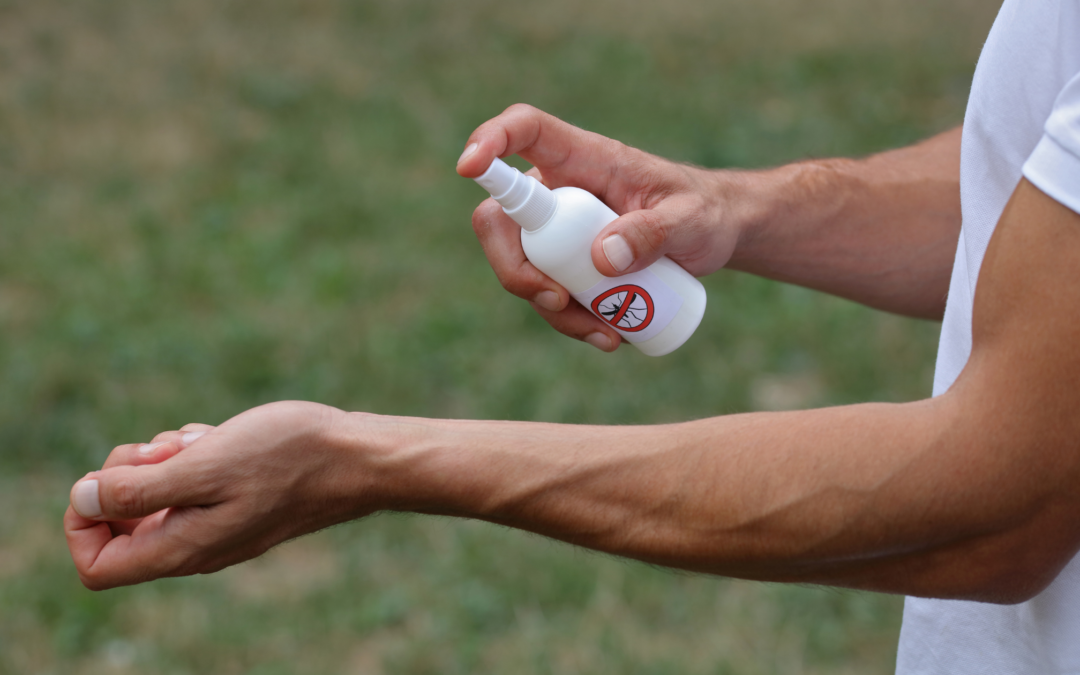
Mosquitoes are more than just a nuisance; their bites can pose serious health risks to humans and pets. In Georgia, where warm and humid conditions create an ideal breeding ground for these pests, it’s essential to understand how to protect your family effectively. This blog will detail the risks associated with mosquito bites, tips to prevent them, and the most effective mosquito repellents, including natural options and mosquito-repellent plants.
Mosquito bites can lead to more than just itchy welts. They are vectors for several dangerous diseases, posing significant health risks:
Preventing mosquito bites involves a combination of personal protection and environmental management. Here are some practical tips:
When it comes to mosquito repellents, efficacy and safety are paramount. Here are some of the best options:
DEET is the most widely used active ingredient in mosquito repellents and is highly effective. Products containing 20% to 30% DEET provide long-lasting protection and are safe when used as directed by the Environmental Protection Agency (EPA).
Picaridin is another effective mosquito repellent that provides comparable protection to DEET. It is odorless, non-greasy, and less likely to irritate the skin. Products with 20% picaridin are recommended for the best protection.
OLE is a plant-based repellent recognized by the CDC as an effective alternative to DEET and Picaridin. Products with 30% OLE can provide protection for up to six hours. It’s important to note that OLE should not be used on children under three years old.
For those looking for natural options, several plant-based repellents can help keep mosquitoes at bay:
Citronella oil, derived from lemongrass, is a common natural mosquito repellent. Candles, sprays, and lotions containing citronella can provide short-term protection. However, it’s not as long-lasting as DEET or Picaridin.
Lavender oil not only has a pleasant fragrance but also acts as a natural mosquito repellent. Applying diluted lavender oil to the skin can help deter mosquitoes.
Tea tree oil has antiseptic and anti-inflammatory properties. It can be used as a natural repellent, though it should be diluted before application to avoid skin irritation.
Incorporating mosquito-repellent plants into your garden can provide additional protection. Here are some plants known for their mosquito-repellent properties:
Marigolds contain pyrethrum, a compound used in many insect repellents. Planting marigolds around your home can help keep mosquitoes at bay.
Basil is not only a culinary herb but also a mosquito repellent. The essential oils in basil can deter mosquitoes, making it an excellent choice for patio gardens.
Catnip contains nepetalactone, which is highly effective at repelling mosquitoes. It is ten times more effective than DEET in some studies.
Mosquito control is essential for protecting your family from the health risks associated with mosquito bites. By combining effective mosquito repellents with preventive measures and natural solutions, you can enjoy the outdoors without the constant threat of these pests. For comprehensive mosquito control, consider consulting a professional mosquito control company in Georgia. They can provide tailored solutions to keep your home and yard mosquito-free.
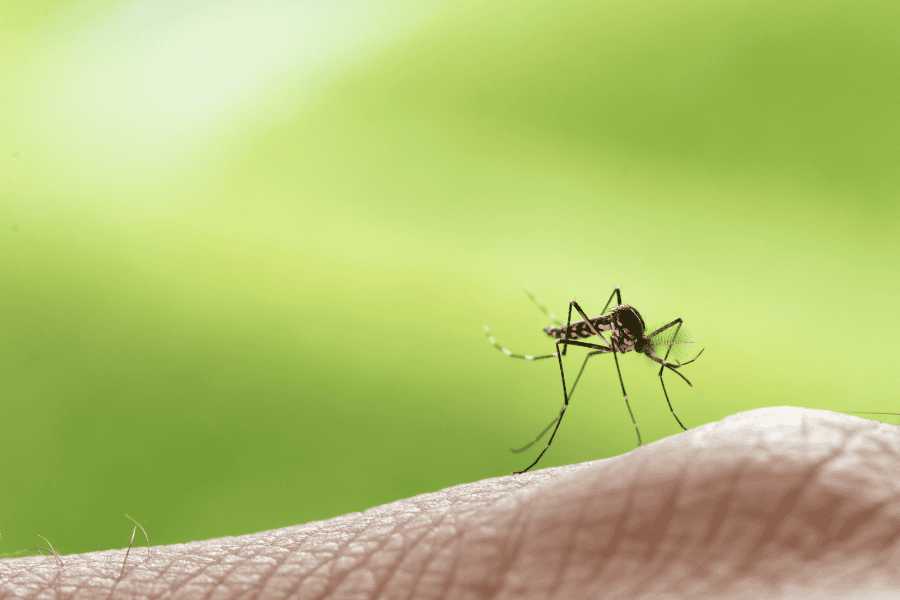
As a Florida resident, dealing with mosquito season each year can start to feel like a never-ending battle! Luckily, there are plenty of ways you can deter these pests from your property. We breakdown a guide on mosquito prevention you can utilize to protect your family and property in Florida from these pests!
To survive and breed, female mosquitoes need a blood meal, often looking to humans and pets for it. Mosquitoes will transfer diseases and viruses, including the Zika virus, dengue, West Nile virus, and more, making it crucial to protect yourself and your family from mosquito bites during their peak season. One of the best ways to deter mosquitoes from biting you and your family is utilizing mosquito repellent that contains DEET. Repellents with DEET can be very effective as they will block the mosquitoes CO2 receptors. We recommend spraying it onto your hands and running it over your skin instead of spraying it directly onto the skin.
Your lawn is the first line of defense against mosquitoes taking over. The best way to avoid mosquito infestations is to maintain your lawn and place preventative measures throughout your yard to deter them away. Mosquitoes only need the smallest amount of standing water to breed, so it’s important to remove any potential breeding sites throughout your property. Inspect your yard and remove items that can hold water, leaves and debris, clogged gutters, and drainage sites. Likewise, look to trim trees and shrubs that are overgrown and continue your ongoing mowing schedule.
Have you ever had to deal with a constant buzzing sound in your home? If so, you know how annoying it can be, especially when you can’t find the culprit! To keep mosquitoes from sneaking into your home, confirm that your windows and doors screens are in good condition, replacing any torn ones if needed. During peak mosquito season, try to keep your doors and windows closed as much as possible.
While placing these measures throughout your home will always support mosquito prevention efforts, sometimes it’s best to reach out to a mosquito control company near you for even more support. Consider hiring a reputable Florida mosquito control company to inspect your property, identify breeding sites, and implement targeted treatments to reduce mosquito populations effectively.
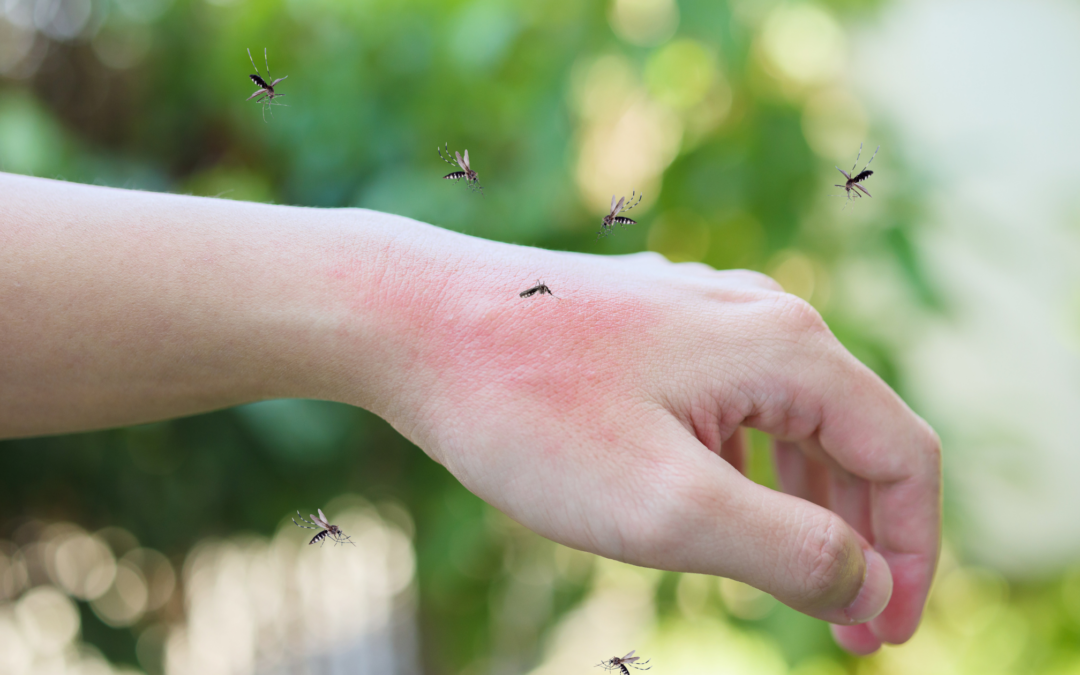
In the warm and humid climate of Georgia, mosquitoes are a common nuisance, particularly during the summer months. While their buzzing may seem harmless, mosquito bites can lead to discomfort and even pose health risks. Understanding how to identify, treat, and prevent these bites is essential for maintaining a safe and enjoyable outdoor experience. In this guide, we’ll delve into everything you need to know about mosquito bites and how to deal with them effectively.
Mosquito bites are typically small, red, and itchy bumps on the skin. They often appear in clusters and can be easily mistaken for other insect bites. However, there are some distinguishing features of bites from mosquitoes that can help you identify them. They usually have a central puncture mark, where the mosquito has inserted its proboscis to draw blood. Additionally, they tend to itch more intensely compared to other insect bites.
Aside from the characteristic red bumps and itching, bites from mosquitoes can sometimes cause more severe reactions in certain individuals. These symptoms may include swelling, soreness, and even blistering around the bite area. In rare cases, individuals may experience allergic reactions to mosquito saliva, leading to symptoms such as hives, difficulty breathing, and swelling of the face or throat. It’s essential to seek medical attention immediately if you experience severe allergic reactions to these bites.
Mosquito bites not only cause discomfort but also carry the risk of transmitting various diseases. In Georgia, mosquitoes can transmit diseases such as West Nile virus, Eastern equine encephalitis, and Zika virus. Additionally, pets are also susceptible to mosquito-borne illnesses, including heartworm disease in dogs. Mosquito control is crucial for protecting both humans and pets from these potentially harmful diseases.
The duration of insect bites can vary depending on individual factors such as skin sensitivity and immune response. In general, mosquito bites typically last for a few days to a week. However, the itching and discomfort can persist for longer periods in some cases. Proper treatment and care can help alleviate symptoms and speed up the healing process.
When it comes to treating bites from mosquitoes, there are several home remedies and over-the-counter options available. Calamine lotion or hydrocortisone cream can help reduce itching and inflammation. Applying a cold compress or ice pack to the affected area can also provide temporary relief. Additionally, antihistamines can help alleviate itching and discomfort caused by the bites. For severe reactions or signs of infection, it’s best to consult a healthcare professional for proper evaluation and treatment.
Prevention is key when it comes to avoiding mosquito bites. Here are some effective strategies to minimize your risk of being bitten:
Mosquito bites are more than just a nuisance—they can pose serious health risks to humans and pets alike. By understanding how to identify, treat, and prevent them, you can enjoy the outdoors safely and comfortably. Remember to take proactive measures to control mosquitoes around your home and minimize your exposure to these pesky insects. If mosquito infestations persist despite your efforts, consider seeking professional assistance from a trusted mosquito control company to address the issue effectively. Stay informed, stay protected, and enjoy a bite-free summer in Georgia!
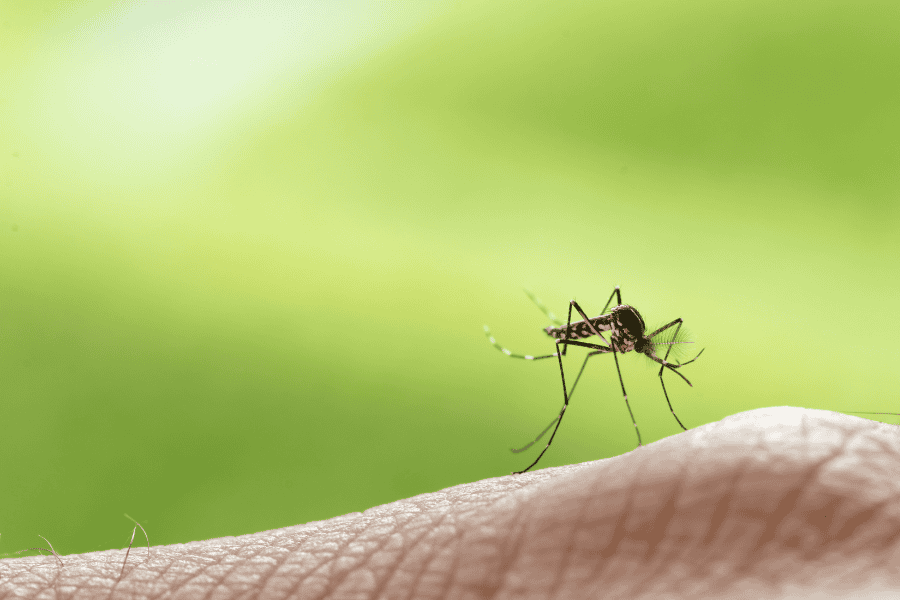
Dealing with mosquitoes is almost a year-round endeavor for Florida homeowners. Florida’s humid and hot weather is the perfect environment for these pesky insects to thrive. Unfortunately, we often deal with their itchy, irritating bites. So why do mosquitoes bite in the first place? And what are the best ways to prevent mosquitoes from biting us and taking over our yards? Let’s breakdown mosquito bites and easy do-it-yourself methods to prevent them.
To obtain the protein to develop eggs, female mosquitoes will bite animals and humans. Female mosquitoes will locate a host by the carbon dioxide we exhale, heat, and even body odor. When a mosquito lands on your skin, it will use its proboscis or their long, needle-like mouthpart, to pierce your skin and suck your blood. While the mosquito is feeding, it will inject its saliva onto your skin, which can cause an allergic reaction and result in itchiness and swelling. Mosquitoes will bite and feed on blood until they have consumed enough and are full.
Depending on the person, mosquito bites can cause an allergic reaction and are also prone to spread disease, including the Zika virus, West Nile, and Encephalitis, so it’s important to take precautions before you go outside during peak mosquito season and maintain your yard to avoid their infestation. There are several do-it-yourself tips to prevent mosquito bites you can utilize:
Eliminating and controlling mosquitoes can feel like an endless battle during Florida’s spring and summer months, even with preventative measures in place. But you don’t have to battle mosquitoes alone! Contact the nearest pest control company for a thorough inspection, effective mosquito control plan, and recommendations on preventing mosquitoes in the future!
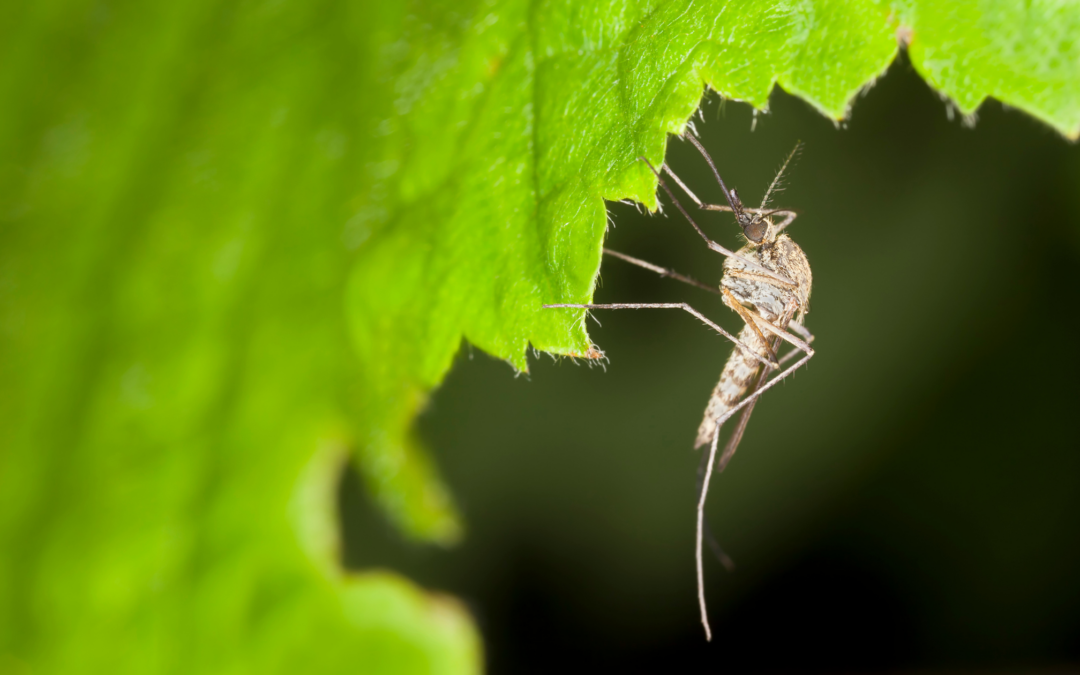
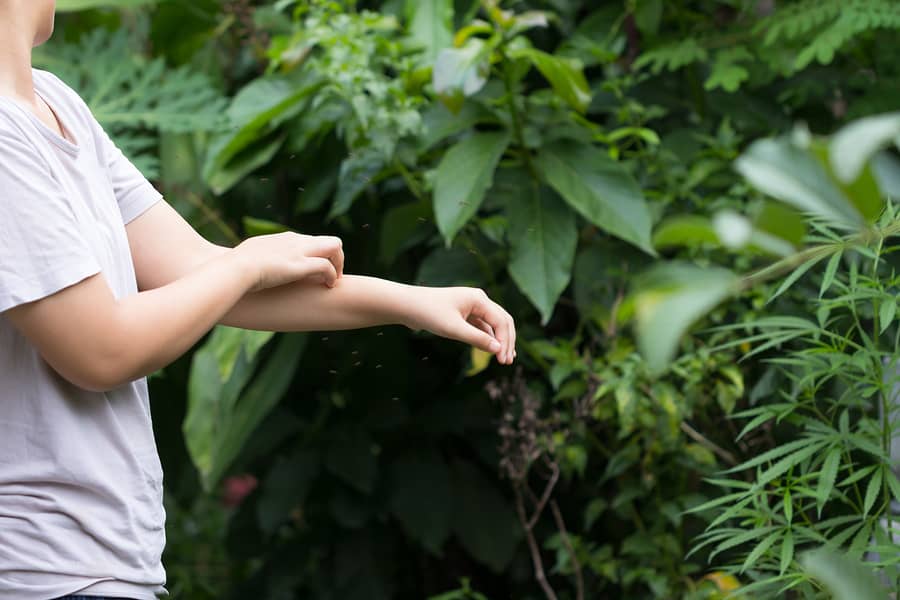
Humid, hot environments can be a major indication that mosquitoes are out and looking for a blood meal. Mosquito bites can be painful, creating an itchy, red welt on the skin. Depending on the person, mosquito bites could cause an allergic reaction too. While it’s inevitable to run into mosquitoes during these months, there are still ways to eliminate the chance of getting bitten.
When the weather is warm, humid, but perfect for being outside, it’s less likely that covering up is first thing you’ll think of doing. But, covering up is the most effective and easiest way to prevent mosquitoes from biting you. If you know you’ll be outside for some time, consider wearing long sleeves and pants as much as possible to cover your exposed skin. When preparing to spend time outdoors, consider wearing light-colored clothes. It’s known that mosquitoes are more attracted to darker colors, so wearing lightly colored clothing can help reduce the chance of being bitten.
If wearing long shirts and pants isn’t an option, another alternative is using insect repellant. Insect repellants are great to use when the weather is particularly hot and humid. It’s suggested that the best type of repellent to use is those that contain DEET. DEET has proven to be highly effective at repelling mosquitoes and other biting insects. It can help protect from mosquito-borne diseases such as Zika Virus, West Nile, and Encephalitis.
Whatever activities or plans you have while outside if the weather is hot, your body temperature will elevate. Staying cool and avoiding high body temperatures is impossible in the humid heat but it’s still important to try and keep cool as much as you can, since mosquitoes are highly attracted to elevated body temperatures. If you’ll be outside for a while in the heat, consider using portable fans, cold rags on your neck or forehead, and drink plenty of water throughout the day. Or consider planning your day around peak mosquito time which is in the late afternoon and evening.
It’s inevitable to run into mosquitoes in the spring and summertime and sometimes prevention isn’t enough. If you’ve gotten bitten one too many times, consider calling your local pest control company where they can provide you with an inspection and offer an effective mosquito treatment plan.

Spending time outdoors is a great way to escape the hustle and bustle of everyday life. Whether it’s spending time by the pool, having a picnic, or just lounging in the yard, relaxing outside is a great activity for the whole family. But the last thing you want to have to deal with while spending time in your yard are mosquitoes. Mosquitoes can be a danger to your family and even pets as they survive by sucking blood from animals and humans. They are usually found in areas of high humidity looking for stagnant, standing water to breed. Luckily, there are ways you can prep your yard to prevent mosquitoes.
Remove Unnecessary Items
Since mosquitoes breed in standing water, it is essential to eliminate any items that could hold water. Items such as foundations, toy buckets, outdoor pet bowls, flowerpot sauces, tarps, pool covers, and more should not stay in your yard for a long period of time. It’s also important to remove excess grass, leaves, firewood, and yard clippings as mosquitoes tend to stay in grass and debris around your home.
Clean Your Gutters
Clogged gutters can not only create standing water but will also catch debris and leaves. This provides mosquitoes a perfect breeding location. Make sure that your gutters are clean and clear, especially after a thunderstorm. Consider installing gutter guards to help prevent clogs and clutter.
Fill Hollow Areas
Any low-lying areas like ditches can also collect standing water after rain or watering plants. Make sure to check around your yard that you don’t have these; if you do notice them you can simply fill them in with dirt. Additionally, check for any hollow logs and stumps throughout your yard. They not only can hold standing water but will also provide overwintering mosquitoes a place to hibernate during cold weather.
Maintain the Pool
If you have a well-maintained pool, mosquitoes will most likely avoid it. However, if a pool goes unused for a long period of time, these pests will be attracted to the stagnant water. Make sure to keep the pool maintained or covered if you’re planning to not use it for a while.
By utilizing these tips, you can start to enjoy your yard and worry less about mosquito bites! If you are still having an infestation of mosquitoes, it’s best to contact your local pest company to provide you with the best plan of action to eliminate mosquitoes. Request a Free Estimate now to get started.
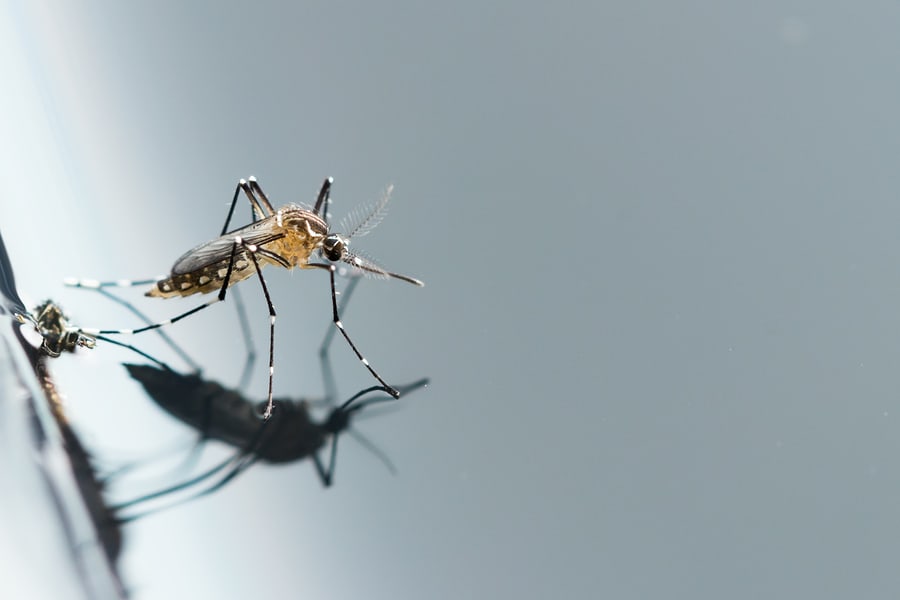
Typically, when you’re swatting away mosquitoes, you’re most likely outside. But what if you notice these pesky bugs inside your home? Mosquitoes can be considered one of the most irritating pests during the warmer seasons. They’re usually found in areas of high humidity and survive by sucking blood from animals and humans. When you’re relaxing at home after a long day of work, the last thing you want to worry about is getting bit by one or several of these pests. Though, if you’re starting to see them inside your home, it’s probably time to start investigating.
Mosquitoes could easily sneak inside your home through broken screens or doors. Mosquitoes are extremely small, and if there’s a slightest gap open to enter your home, they will. Begin to inspect the screens, windows, and doors in your home. Make sure there aren’t any large gaps or tears that would allow any bugs to enter the home.
Mosquitoes are attracted to still and stagnant water. There’s a high chance of mosquito activity if your property is near standing water with a constant water source. Mosquitoes could easily enter your home and lay their eggs; female mosquitoes will lay eggs in water for survival.
House plants are also known to attract mosquitoes inside the house. If your house plant has a water tray, mosquitoes will typically start to lay their eggs there while also feeding off the plant to get energy. Clean out your water trays periodically to prevent mosquitoes from laying more eggs.
One factor that not all homeowners will think about is a possible plumbing problem attracting mosquitoes. Simple leaks with small pools of water will certainly attract these pests. Mosquitoes are not only attracted to just areas of moisture, they can also be found in shaded, covered areas. Make sure to check crawl spaces, basements, and other areas where a pipe could leak.
Finally, if you’ve inspected all these possible factors and are still being infested with mosquitoes or want to put in place a mosquito prevention plan, call a local pest control company where they can investigate the problem and create a mosquito reduction program designed for your home.
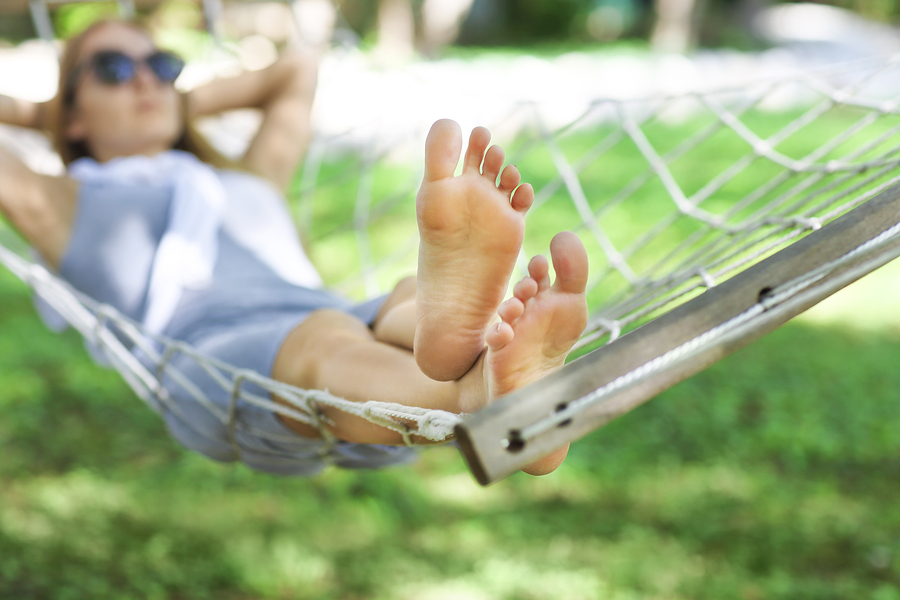
The sun is shining, the warm breeze is blowing, you’ve got your feet up, unwinding from the week, when…OUCH! That moment of relaxation you’ve been waiting for was suddenly interrupted by a painful mosquito bite. At this point you’re annoyed, thinking about going back inside to avoid more bites, or wondering if you should make an appointment with your doctor to check for Zika or West Nile. What a summer bummer!
Mosquitoes not only pose serious risks for your family, but pets are a target too. Heartworms are parasites transmitted to dogs and cats through mosquito bites, that live in pets’ bloodstream, lungs and heart, and can cause serious, even deadly, side effects.
Don’t let mosquitoes suck the life out of your summer. Protect family and pets and take back your yard with these easy mosquito bite prevention tips:
Mosquitoes breed in areas with stagnant, standing water like fountains and water features, toys, buckets, outdoor pet bowls, bird baths, clogged gutters, vases, flowerpot saucers, old tires or tire swings, rain barrels, trash cans and trash can lids, tarps, kiddie pools, and pool covers. The best way to prevent mosquito bites is to remove these items/areas and to treat your yard with mosquito control products. This is included in a monthly mosquito reduction program and is guaranteed to drastically reduce the number of mosquitoes in and around your yard.
One of the best ways to prevent Zika and other mosquito-borne diseases is to use skin-applied insect repellent when you’re going to be outside. Formulas that contain DEET and picaridin were found to be most effective at preventing mosquito bites (and those with natural plant oils least effective), according to Consumer Reports.
If you really want to further prevent bites, keep arms and legs covered when outdoors with light-colored, loose clothing. Sometimes this can be just as uncomfortable as getting bitten, though, with the scorching summer heat. If you leave skin exposed, be sure to reapply insect repellent often (especially if you’ll be swimming).
Consider using fans in areas you’ll be hanging out this summer – on decks, patios, around pools, etc. Mosquitoes are weak fliers so the winds from fans will make it hard for them to get close enough to bite.